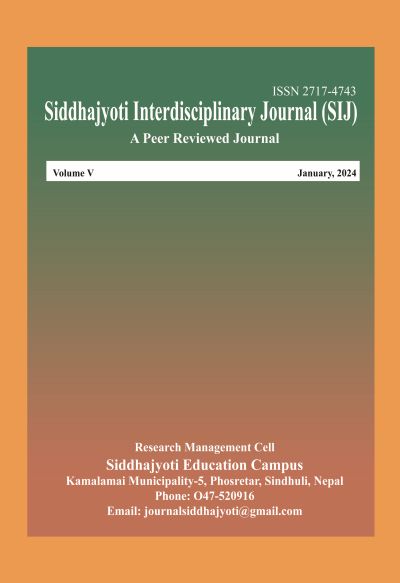Use of EMI at Secondary Education: Exploring Non-English Nepalese Teachers’ Ideologies
DOI:
https://doi.org/10.3126/sij.v5i1.63596Keywords:
Ideology, EMI, Secondary Education, Hegemony, Non-English, Ideology, EMI, Secondary Education, Hegemony, Non-EnglishAbstract
English as a Medium of Instruction (EMI) is a teaching of non-English academic subjects using English where the very language is not the first language for most of the population.The study aimed at exploring the teachers’ pertinent ideologies towards the use of EMI in the teaching of non-English subjects. The researcher used narrative inquiry as a research design where the purposive sampling strategy was used to select the sample from the target population. In-depth interview was used as a research method to collect the information from the participants. The interviews were conducted based on the interview guidelines. The information was recorded, transcribed, translated, coded, categorized, and thematically analyzed. The study found that the teachers possessed various deep rooted ideologies on EMI, such as EMI as a mediating tool to internationalize the education system, EMI as a linguistic capital in the educational market, EMI as a linguistic hegemony to the underdeveloped countries, and EMI standardizes the academics and improves the competitive capacity. It can be inferred that EMI has been ideologized by both practitioners and policy makers. Moreover, the real practitioners and their ideologies are to be considered while designing the policies, and planning the provisions.
Downloads
Downloads
Published
How to Cite
Issue
Section
License
This license enables reusers to distribute, remix, adapt, and build upon the material in any medium or format for noncommercial purposes only, and only so long as attribution is given to the creator.

